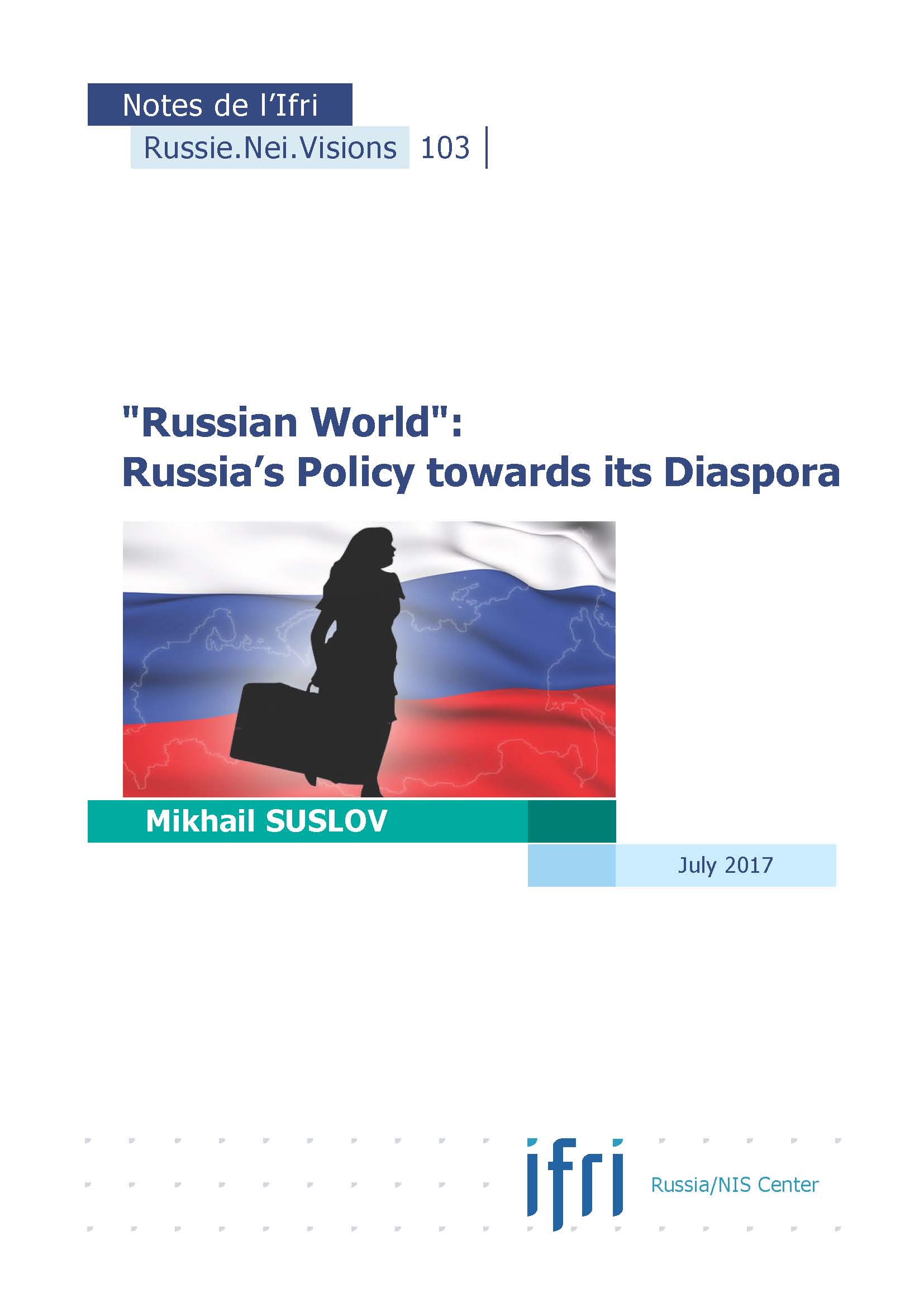“Russian World”: Russia’s Policy towards its Diaspora

This paper examines how the large Russian-speaking population outside Russia has been ideologically constructed and politically instrumentalized by the Kremlin’s leadership.
It traces the evolution of the diaspora policies and visions from the early 1990s to the present, and argues that the understanding of Russian “compatriots abroad” has never been the same; rather, it travelled a long road from revanchist irredentism of the red-brown opposition in the 1990s, to the moderately liberal pragmatism of the early 2000s, to the confrontational instrumentalization of Russian “compatriots” as a lever of Russia’s soft power in the late 2000s, and, finally, back to the even more confrontational, irredentist and isolationist visions after the Ukrainian crisis of 2014.
Mikhail Suslov is an assistant professor of Russian history and politics at the University of Copenhagen. His research focuses on Russian intellectual history, conservative, right-wing and religiously-motivated political ideas, geopolitical ideologies and socio-political utopias.
Download the full analysis
This page contains only a summary of our work. If you would like to have access to all the information from our research on the subject, you can download the full version in PDF format.
“Russian World”: Russia’s Policy towards its Diaspora
Related centers and programs
Discover our other research centers and programsFind out more
Discover all our analysesRussia's Asia Strategy: Bolstering the Eagle's Eastern Wing
Among Russia’s strategic priorities, Asia traditionally played a secondary role compared to the West. In the mid-1990s, then Foreign Minister Yevgeny Primakov initiated a rapprochement with China and India. Then, in 2014, deteriorating relations between Russia and the West prompted Moscow to begin its “great pivot to the East”.
Kazakhstan After the Double Shock of 2022: Political, Economic and Military Consequences
The year 2022 represented a dual shock for Kazakhstan. In January, the country faced its most severe political crisis since independence, followed in February by Russia’s full-scale invasion of Ukraine, which cast uncertainty over the borders of post-Soviet states. These consecutive crises profoundly shaped Kazakhstan’s domestic and foreign policy.

How the Russian Army Changed its Concept of War, 1993-2022
The traditional and high-intensity war that has occurred in Ukraine since Russia decided to invade raises a key issue: did post-soviet Russian strategic thought really prepare Russia for waging this war?
Russia's Nuclear Deterrence Put to the Test by the War in Ukraine
From the outset of its “special military operation” (SVO) against Ukraine on February 24, 2022, Russia, which possesses one of the world’s largest nuclear arsenals, has adopted aggressive deterrence measures and a resolutely menacing rhetorical stance.











